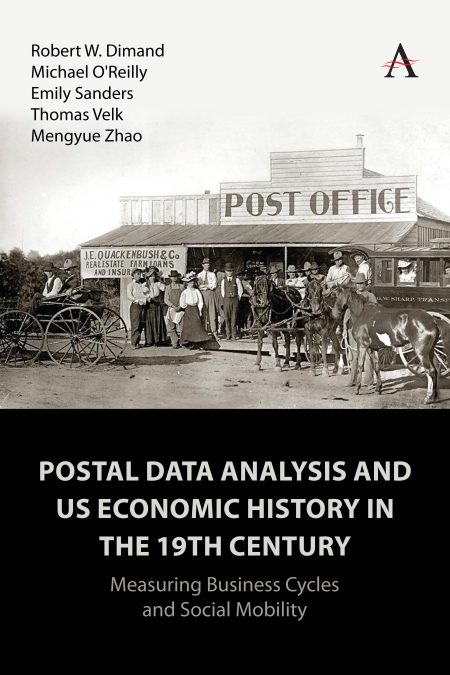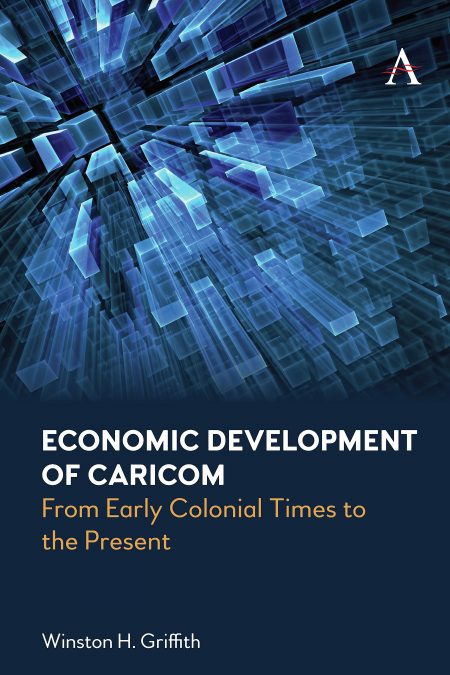Postal Data Analysis and US Economic History in the 19th Century
Measuring Business Cycles and Social Mobility
Robert Dimand, Michael O'Reilly, Emily Sanders, Thomas Velk, Mengyue Zhao
Select Format
Title Details
- ISBN: 9781839990731
- December 2024
- Pages: 100
Previously unexploited postal data provides a good proxy for economic activity in the nineteenth-century United States, disaggregated down the area served by each post office for each two-year period. Compensation paid to every employee of the United States Government, including postmasters, was published for each two-year period from 1816 in the Official Register, of which only a few complete sets survive. Postmasters were compensated according to the volume of business at their post office, in an era where mail was the principal means of communication and postal money orders played a crucial role in the payments systems. Because the formula according to which postmasters were compensated changed repeatedly, earlier historians were unable to go from the compensation of postmasters to the revenues of their post offices. We have been able to determine what the compensation formula at each time and so can back out the volume of business in each post office in each period from the compensation paid to the postmaster. This provides us with a proxy for economic activity that is much more disaggregated in space and time than previously available estimates.
We use this measure of economic activity to study economic fluctuations by region and to investigate how regions differed in their sensitivity to national business cycles in the nineteenth-century United States. The data also make it possible to follow, at a finer level of disaggregation than was previously attainable, the effect of the expanding railway network on economic activity. We use data on postal money orders to explore the flow of funds between states as well as between states and foreign countries.
We use data on postmasters and their compensation to illuminate issues of social mobility and status, with particular attention to female and African American postmasters and to the transmission of postmaster positions within families. This book draws the attention of historians to a previously neglected treasure trove of quantitative information on the economy and society of the nineteenth-century United States.
Robert Dimand is a professor of economics at Brock University.
Michael O’Reilly is an independent researcher and postal historian.
Thomas Velk is Professor Emeritus of Economics at McGill University, where he was Director of the North American Studies Program.
Mengyue (Rachel) Zhao, a graduate of McGill University, holds master’s degrees in economic and social history from Oxford University and in management analytics from the University of Toronto.
Related products
-
Technological Retrogression
A Schumpeterian Interpretation of Modernization in Reverse
Sylvi B. Endresen
foreword by Erik ReinertJune, 2021
£125.00 / $125.00 -
Constraining Development
The Shrinking of Policy Space in the International Trade Regime
Rachel Denae Thrasher
July, 2021
£125.00 / $125.00 -
Green Growth, Smart Growth
A New Approach to Economics, Innovation and the Environment
Ralf Fücks
foreword by Anthony Giddens
translated by Rachel HarlandJune, 2015
£29.95 / $29.95 -
The Military and Denied Development in the Pakistani Punjab
An Eroding Social Consensus
Shahrukh Rafi Khan, Aasim Sajjad Akhtar
with Sohaib BodlaNovember, 2014
£115.00 / $115.00 -
Financial Engineering of Climate Investment in Developing Countries
Nationally Appropriate Mitigation Action and How to Finance It
Søren E. Lütken
June, 2014
£115.00 / $115.00 -
Economic Development of Caricom
From Early Colonial Times to the Present
Winston H. Griffith
October, 2021
£125.00 / $125.00








